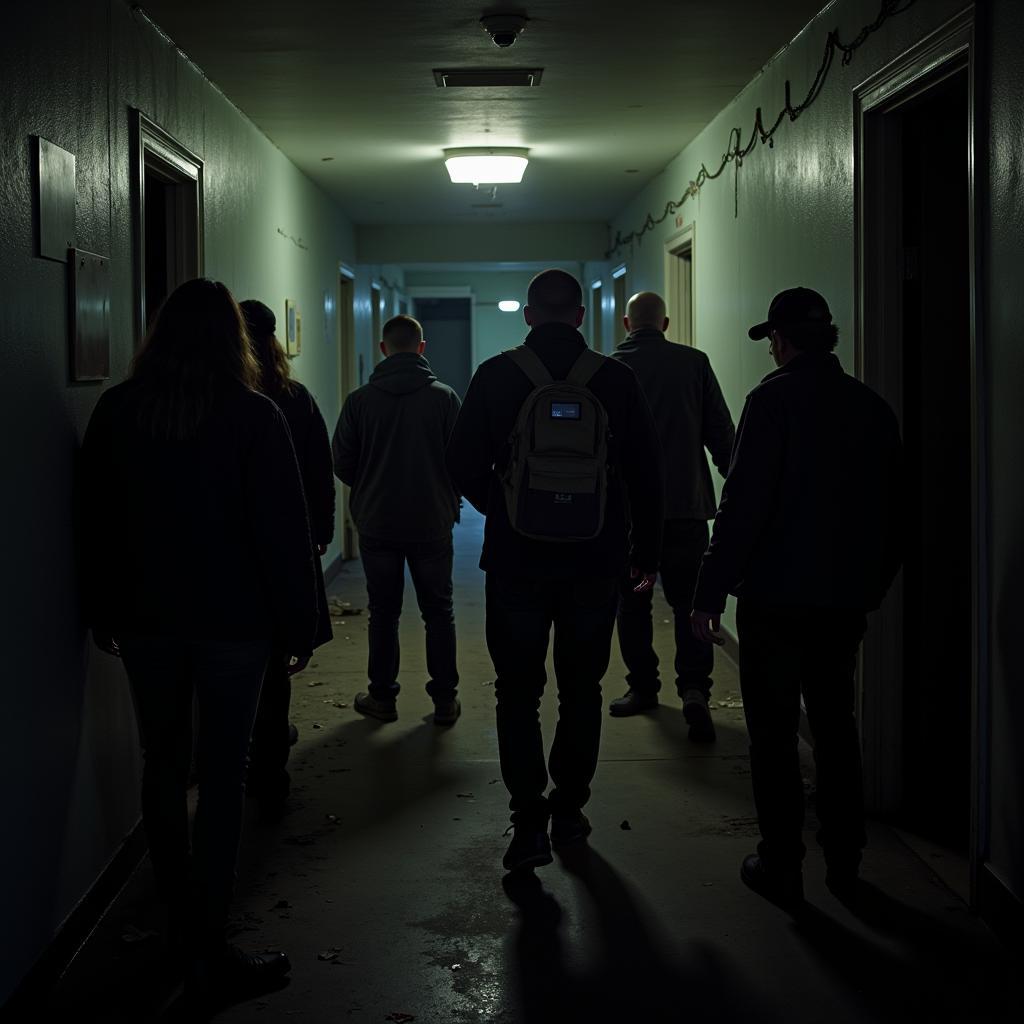The world of paranormal research, much like our own universe, is shrouded in mysteries waiting to be unraveled. One of the most critical tools we employ in our pursuit of the unknown is “Data Definition Research”. This approach allows us to bring structure and clarity to the often chaotic and subjective nature of paranormal phenomena.
Defining the Enigma: What is Data Definition Research?
At its core, data definition research in the paranormal field is about establishing clear, concise, and measurable definitions for the phenomena we investigate. Just like scientists define gravity or physicists define quantum entanglement, paranormal researchers need to establish a common language to describe and analyze experiences that often defy conventional explanation.
The Importance of Data Definition in Paranormal Investigations
Imagine trying to study ghosts without a shared understanding of what constitutes a “ghost”. Are we talking about apparitions, cold spots, disembodied voices, or something else entirely? Without clear data definitions, our investigations become muddled, our findings unreliable, and our conclusions open to endless debate.
This is where data definition research steps in, providing a framework for:
- Objective Observation: By defining key concepts like “energy signatures,” “psychokinetic activity,” or “spirit communication,” we can move away from vague descriptions and towards quantifiable measurements.
- Comparative Analysis: With clearly defined data points, we can compare and contrast different paranormal events, potentially uncovering patterns and connections that would otherwise remain hidden.
- Improved Communication: A shared vocabulary allows researchers, investigators, and experiencers to communicate more effectively, fostering collaboration and advancing the field as a whole.
From Anecdote to Evidence: How Data Definition Research Works
The process of data definition research in the paranormal often begins with meticulous observation and documentation of reported experiences. This might involve:
- Gathering Testimonies: Interviewing witnesses, collecting personal accounts, and studying historical records related to specific phenomena.
- Identifying Commonalities: Analyzing the gathered data for recurring themes, patterns, and descriptive elements that appear consistently across different cases.
- Developing Operational Definitions: Crafting clear, objective definitions for each element based on the observed commonalities. For example, a “cold spot” might be defined as a localized area exhibiting a temperature drop of 5 degrees Fahrenheit or more compared to the surrounding environment, measurable with calibrated equipment.
- Testing and Refining: These definitions are then applied in field investigations and experiments, with the collected data used to further refine and validate the established definitions.
 Paranormal Research Team Conducting Investigation
Paranormal Research Team Conducting Investigation
Challenges and Criticisms: Navigating the Skeptical Landscape
Data definition research in the paranormal faces unique challenges. Critics often argue that subjective experiences are impossible to quantify and that attempting to do so strips these events of their inherent meaning.
However, proponents of data-driven approaches argue that:
- Subjectivity does not negate the possibility of measurement. By focusing on observable effects and quantifiable data points, we can still study these phenomena rigorously.
- Even seemingly subjective experiences manifest in measurable ways – changes in electromagnetic fields, temperature fluctuations, or physiological responses in witnesses.
The Future of Paranormal Research: Embracing Data-Driven Approaches
As paranormal research evolves, so too will our methods. Data definition research, while still in its early stages, holds immense potential for moving the field forward.
By embracing a more data-driven approach, we can:
- Enhance the credibility of paranormal research.
- Facilitate collaboration and knowledge sharing among investigators.
- Ultimately gain a deeper understanding of the mysteries that lie beyond our current understanding.
While the path ahead remains shrouded in enigma, one thing is certain: by embracing rigorous methods and clearly defined data, we move closer to illuminating the shadowy corners of our world and unlocking the secrets of the paranormal.
FAQ
1. Can data definition research really be applied to something as subjective as the paranormal?
While the subjective nature of paranormal experiences presents unique challenges, data definition research focuses on identifying and defining observable, measurable elements associated with these experiences. This allows for a more objective approach to studying phenomena that have traditionally relied on anecdotal evidence.
2. How can I contribute to data definition research in the paranormal?
If you’re interested in contributing, start by meticulously documenting any paranormal experiences you encounter, focusing on concrete details and objective observations. Share your findings with reputable paranormal research organizations or online communities dedicated to data-driven investigation.
3. What are some examples of data points used in paranormal research?
Data points can include temperature readings, electromagnetic field fluctuations, changes in air pressure, recordings of unexplained sounds, and photographic or video evidence analyzed for anomalies.
Explore Further:
- anonymity definition in research: Learn about the importance of anonymity in research, even within the realm of the paranormal.
- definition of age in research: Discover how age, both of witnesses and potentially of paranormal entities, can be defined and factored into investigations.
- the coding manual for qualitative researchers: Explore how qualitative data, such as witness testimonies, can be systematically analyzed using coding methods.
Have other questions or need help with your own Paranormal Research? Contact us!
Phone: 0904826292
Email: research@gmail.com
Address: No. 31, Alley 142/7, P. Phú Viên, Bồ Đề, Long Biên, Hà Nội, Việt Nam.
Our team is available 24/7 to assist you on your journey into the unknown.